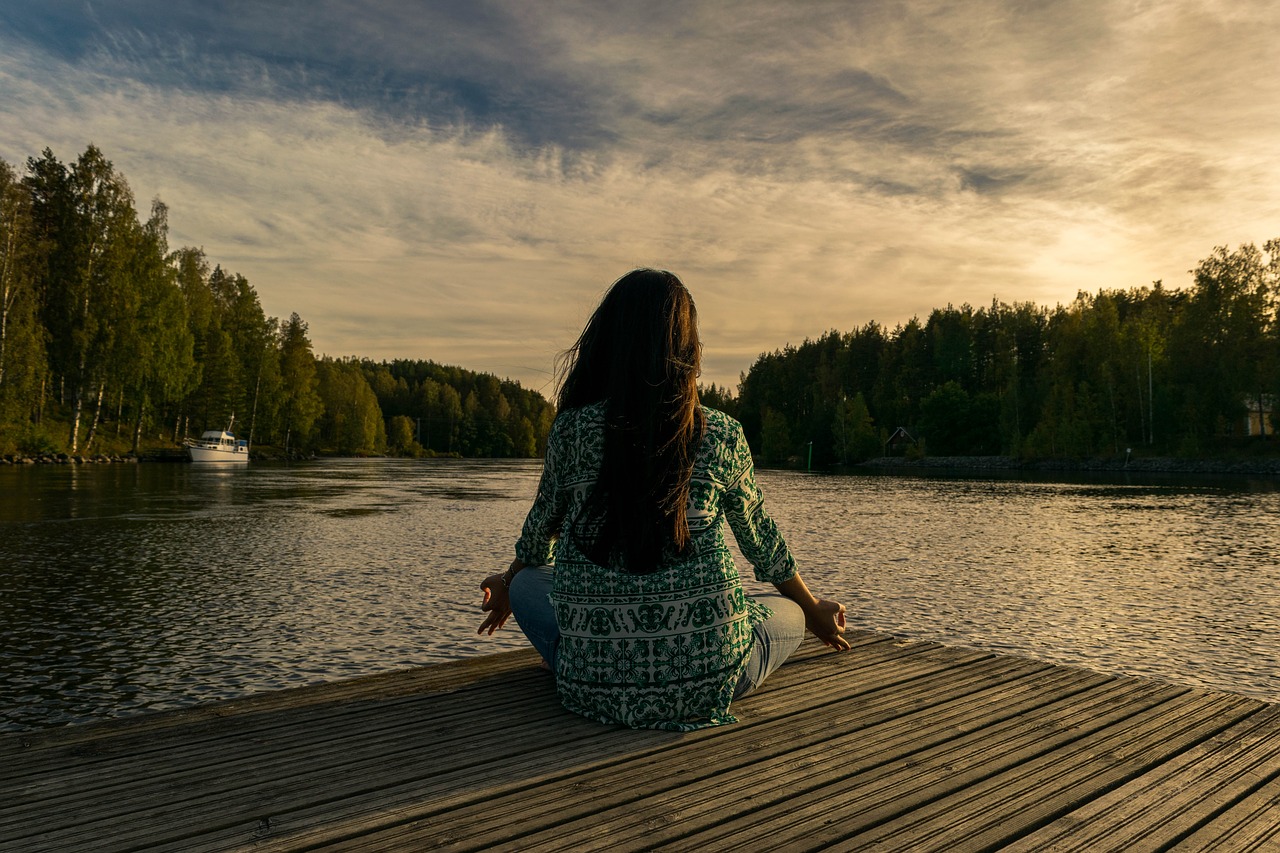Article from meditation-music.com
Self-care is a set of regular activities supporting a person’s physical, mental, emotional, and spiritual well-being. Many professionals in the fields of health, psychology, and medicine now recognize self-care as fundamental to good health on all levels.
If you read up on self-care, you find similar lists of items most people agree are at the core of a person taking good care of themselves.
However, one of these practices is also the key to getting the most from other methods of staying healthy. I’m talking about relaxation and stress management.
Knowing and using reliable techniques for deep relaxation gives you an advantage when you engage in other self-nurturing choices and routines. Here’s how.
The Basics of Self-Care
The most important principles of self-care include:
- Eating a healthy diet
- Sleeping enough hours every 24-hour cycle
- Exercising regularly
- Having healthy human relationships and supportive interpersonal connections
- Engaging your spiritual aspirations and life-fulfilling activities
- Relaxation and stress management
The last item on this list is the key to mastering the other self-care practices. When you are relaxed and present, you make better choices in every other way. When you put relaxation at the forefront of your self-care program, you make it easier to do all of the other self-care practices which keep you functioning at your optimum.
Relaxation Benefits Healthy Eating
For example, when you are stressed-out and rushed, you are much more likely to take the easy route when it comes to eating. Fast food, junk food, and high-sugar snacks suddenly become more appealing and harder to resist when you’re overwhelmed and feeling on-edge.
However, if you regularly use a successful method of relaxing and calming your mind, it can become much easier to imagine cooking up a home-made meal using fresh ingredients and enjoying the food with friends or family.
Also, when you are relaxed, you enjoy the flavors and aromas of your food more, you better absorb the nutrients from what you eat, and you’re less likely to have digestive upsets after eating. So, relaxing before you prepare and eat your meals has many benefits.
Relaxation Leads to Deeper Sleep
If you don’t know how to relax, getting to sleep can become hard or impossible. Getting adequate sleep is vital for staying healthy and productive. Regularly getting too little sleep can weaken the immune system and lead to many physical and mental health problems.
When you frequently practice using deep relaxation and meditation techniques, sleep often becomes easier to achieve and more refreshing. You can even use relaxing audio soundtracks to help you fall asleep.
Relaxation and Exercise
Relaxing and exercising go hand-in-hand. When you exercise, you often feel more physically and mentally relaxed and focused afterward.
But it’s often harder to find time for exercise when you are stressed to start. Keeping relaxation at the forefront of your self-care routine can boost your resolve and enthusiasm for exercising more.
Regular Relaxation Improves Human Connections
Practicing meditation and relaxation techniques can also boost our ability to interact with others in healthy ways. No one is an enjoyable companion when they are irritable, stressed, and can’t relax.
Knowing techniques for quickly and effectively relaxing can make it more enjoyable when you are hanging out with friends and family, or interacting on the job or the street.
Meditation, Relaxation, and Spiritual Development
Our spiritual life and goals of personal fulfillment can also benefit significantly from knowing how to relax deeply. When we are relaxed, we are more engaged with the moment, we think more clearly, and we can access more profound levels of our emotions, thoughts, and core values.
Whether your spiritual and personal goals involve deeper prayer or meditation, more creative art, or improving your skills on a musical instrument, knowing strategies for relaxation can help you reach your goals.
Making Relaxation the Core of Your Self-Care Program
There are many ways to relax. A few of the easiest are:
- Sitting quietly and breathing deeply and slowly for a count of 10 breaths
- Doing yoga, stretching, or exercising
- Spending quiet time in nature
- Engaging in meditation practice or techniques
- Listening to soothing music, ambient sounds, or relaxing sounds with binaural beats.
Whatever relaxation technique works best for you, make it the center of your self-care routine.


